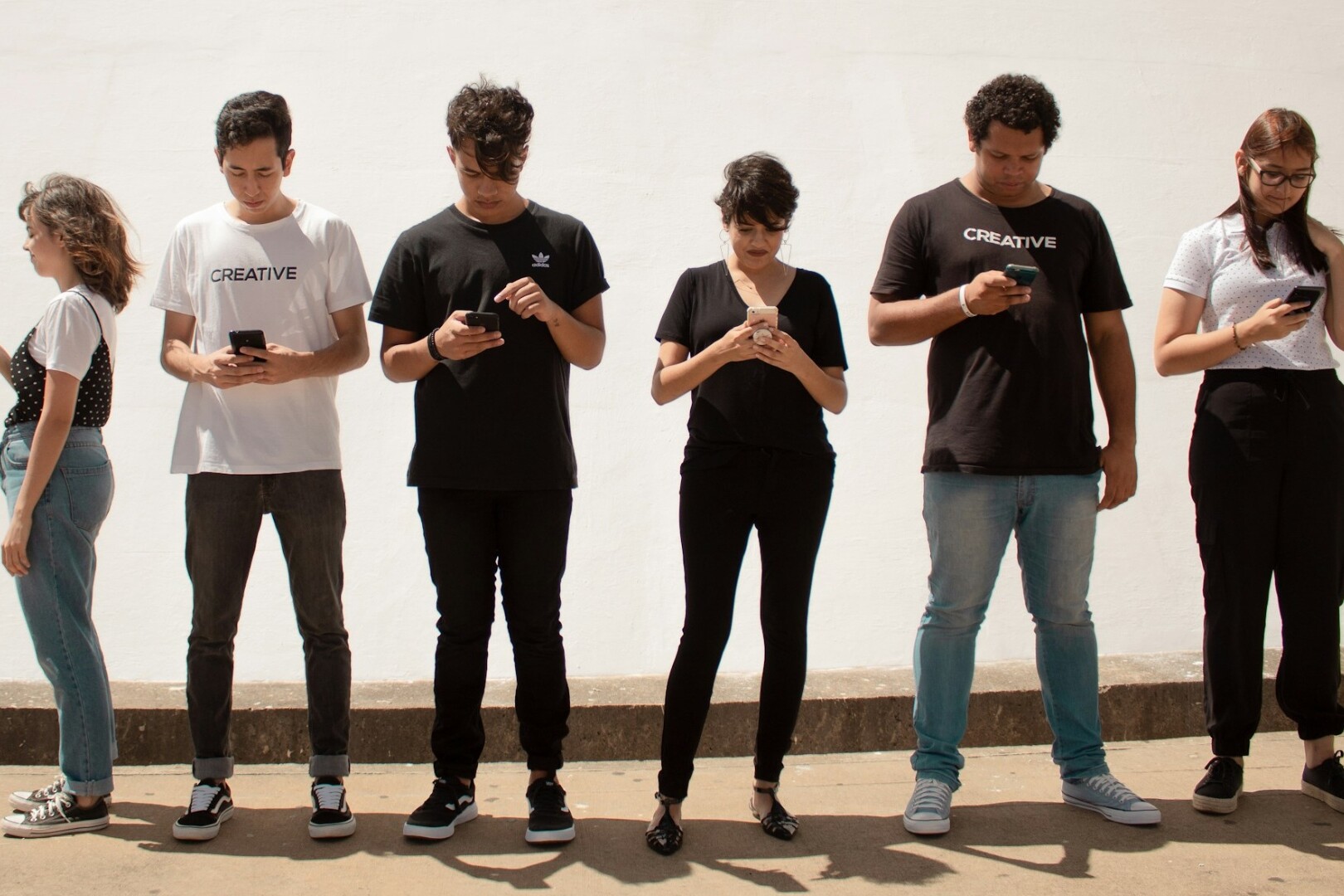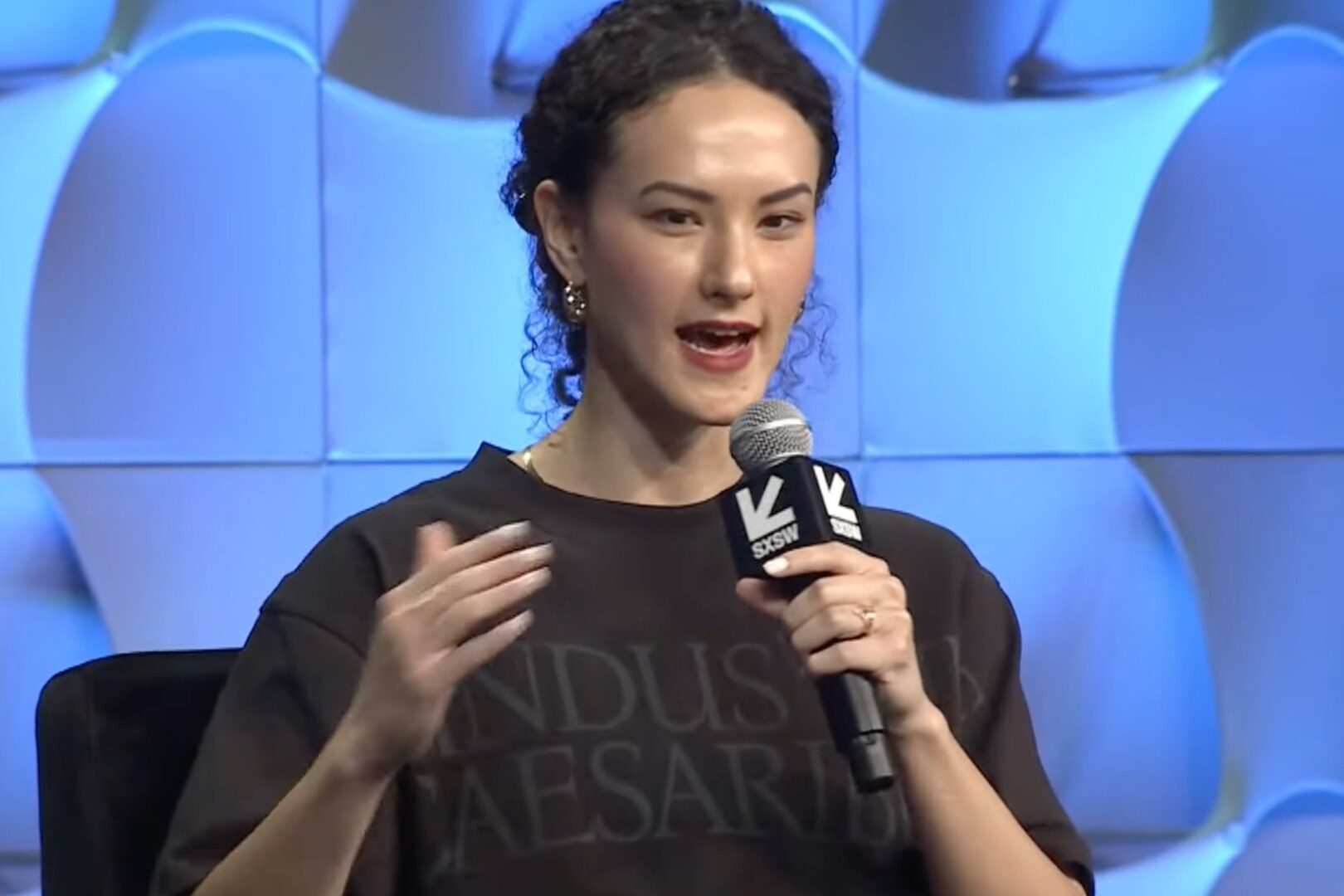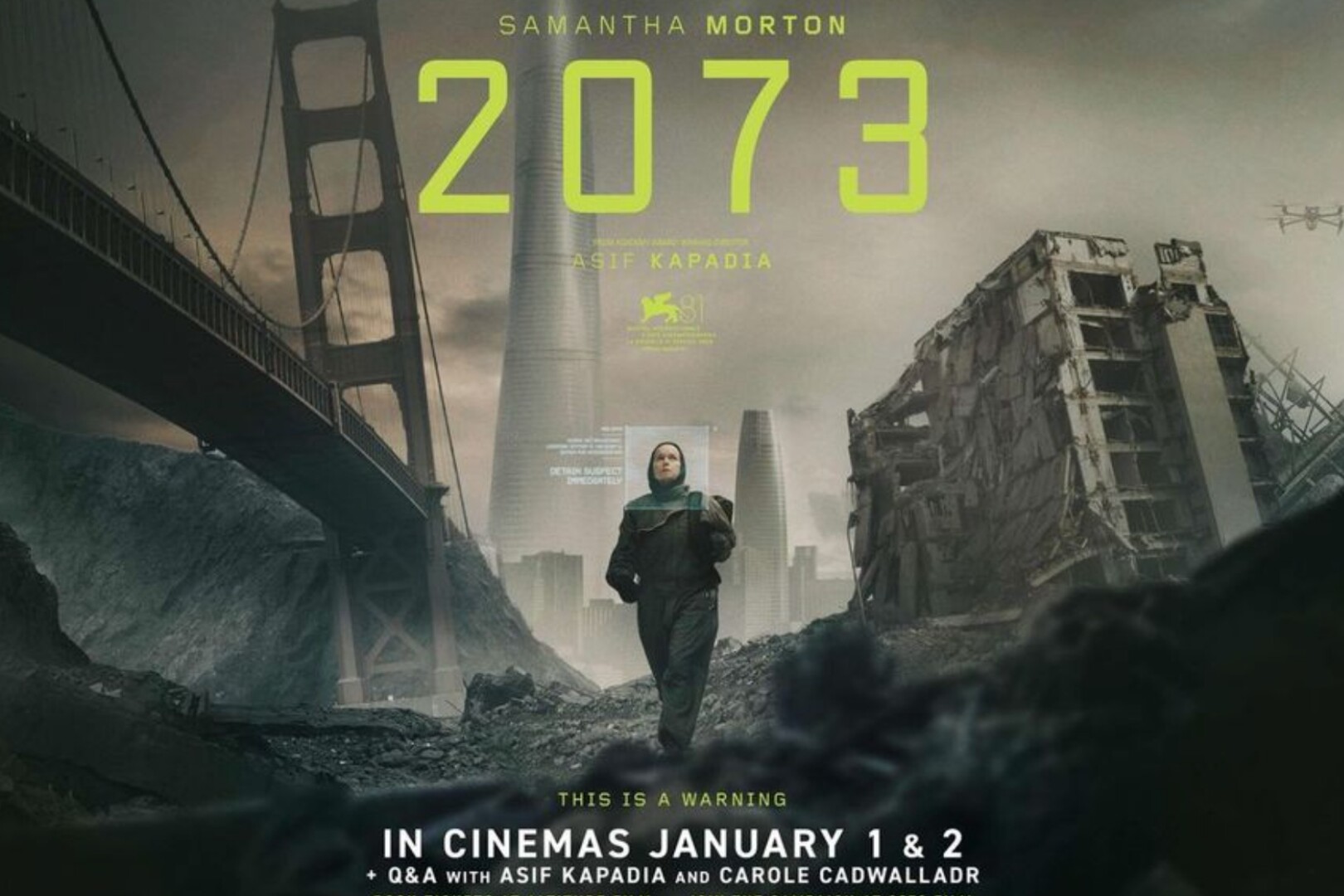I’ve been working on a new brand since completing my Digital Anthropology master’s degree last year. For a while I’ve wanted to make the switch from social media to ethical tech consultancy. I’m far from the first to set up in this space. There are many other organisations already doing brilliant work. I hope to be able to join them.
Over the next few weeks you’ll see some changes to this website, along with a new company name, design and colour palette. I needed to choose a name that would stand out from the crowd but still relate strongly to what I believe in. So – why Sticks & Stones? I wanted a non-tech name that roots us in our humanity and reminds us who we are, while suggesting a strong foundation for the future.
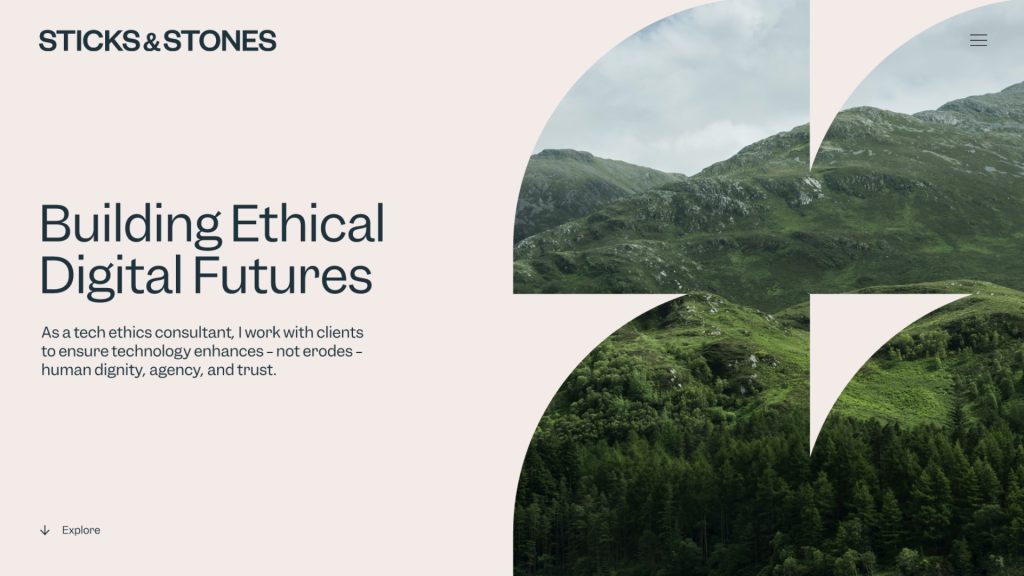
When I started writing social media strategies and creating content 15 years ago, it felt fresh, fun and exciting. It was hard to predict back then that the world’s most powerful men would come to control their own social platforms, disinformation would be rife and democracy itself would be under threat.
Now, with our media increasingly dominated by platform algorithms and artificial intelligence (AI), how do we protect ourselves from the most harmful potential outcomes of new, emerging technologies? How do we harness the best and mitigate the worst?
I wanted my ethical tech consultancy to focus on three things: impact, materiality and mindset.
Here’s a bit more on my thinking:
(1) Impact
We all know the old adage “Sticks and stones may break my bones but names can never hurt me”. It was long thought that name calling and abuse could be simply shrugged off and ignored. But study after study, augmented by cataclysmic real world examples, have shown that digital bullying, trolling and intimidation have real world physical affects. In The Science of Hate, former police chief Matthew Williams narrates how prejudices shared online manifest in real world hate crimes. Meanwhile tragic cases such as that of Molly Russell or Jordan DeMay show how digital communications can construct a world of horror from which it physically feels like there is no escape. Social media content has been cited as a factor in the murders of Brianna Ghey and Olly Stephens. Which is why many parents are calling for a complete ban on social media and smartphones in schools.
Unfortunately the business models underpinning most social platforms prioritise engagement which means that shocking or disturbing content is prioritised and amplified. This leads not only to individual incidents but is now having a proven impact on geopolitics. Riots, genocides and democratic processes have all been influenced by social media content. And the situation is worsening as digital technology scales and works its way into almost every aspect of modern life, now augmented by AI. Deepfakes, conspiracy theories and misinformation are all eating away at long-established beliefs and truths, blurring reality and interfering with democratic processes.
(2) Materiality
The concept of the “cloud” is one we’re all familiar with – it makes us think of digital things as airy, weightless and environmentally friendly. But the cloud is a misnomer. From huge cooling servers built above the arctic circle to cables running along the ocean floor to the gigawatts of energy required to power AI processing, the digital IS material.
And it’s not just the physical materials that make up the internet and its functions. From the content moderators in Kenya to the Amazon warehouse workers of the American Mid-West, human labour is key to digital infrastructures. These people are carrying out what the anthropologist Mary L Gray and computer scientist Siddharth Suri call ghost work. While Silicon Valley executives routinely earn six figure salaries, these lesser known tech workers have few rights, have been refused permission to form unions and are often paid less than the minimum wage.
Meanwhile, social media platforms profit from everyone’s immaterial labour – a term coined by Italian philosopher Maurizio Lazzarato to describe the cognitive work that goes into creating and sharing social content. This digital content creates data which feeds the advertisers and algorithms. You could also add to this the combined labour of creative industry professionals such as artists, journalists, musicians and writers. From the writers’ strikes in LA to the current protests from journalists at the Guardian (newly partnered with OpenAI), creatives are rightly concerned about AI harvesting their work for profit, with no acknowledgement, let alone remuneration.
(3) Mindset
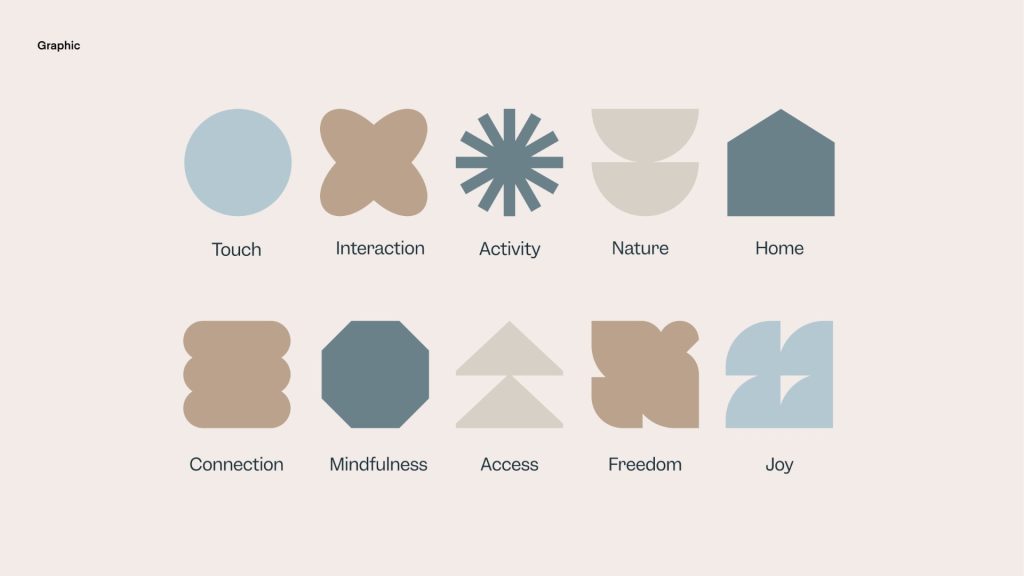
In 2009 I published a book championing social media and celebrating social technologies as a liberating tool to connect us all. But since then, we’ve witnessed the trajectory of social media from a beacon of hope to an often problematic symbol of the worst of humanity. Along with many from that era – Carole Cadwalladr, Tristan Harris, Frances Haugen and Sarah Wynn-Williams, to name a few – I’m no longer a tech-utopian.
I don’t believe that technology will “save” us. But neither am I a complete tech cynic. I don’t want to live off-grid or kill innovation through regulation. But I do believe we need to tread carefully, and be aware of the pitfalls. Astute observers like Timnit Gebru and Ruha Benjamin have long-argued that new digital technologies are encoding existing social prejudice and inequality. We have created this world we live in (a point articulated well by Meredith Whittaker at this year’s SXSW). So we must strive to build a better world – from the ground up. But we need to harness our collective imagination differently in order to do so.
So, my new ethical tech consultancy is all about building solid foundations for an ethical, inclusive approach to technology. Sticks and Stones remind us of what it is to feel, to embody and to be real. They are useful visual building blocks, materials which humans have used as tools since the beginning of time. While we can aspire to harness the very best of digital technology, we must also remain grounded. We must not forget our roots or be distracted by pie–in-the-sky promises (especially from self-interested billionaires). We need to stay mindful of where we’ve come from, and remember what it means to be human.
Watch this space…
Please look out for the revamped website and take a look at my new services page. And do get in touch if anything about this topic resonates with you and the work you’re doing. Maybe we could collaborate on something?
Photo by Wender Junior Souza Vieira on Unsplash
Jemima Gibbons
Ethnography, user research and digital strategy for purpose-led organisations. Author of Monkeys with Typewriters, featured by BBC Radio 5 and the London Evening Standard.
Related Posts
28 November 2025
Tech workers, tech unions and the enshittification of everything
25 June 2025
What’s next for the social internet?
27 March 2025
Female tech leaders rock the stage at SXSW
27 February 2025

